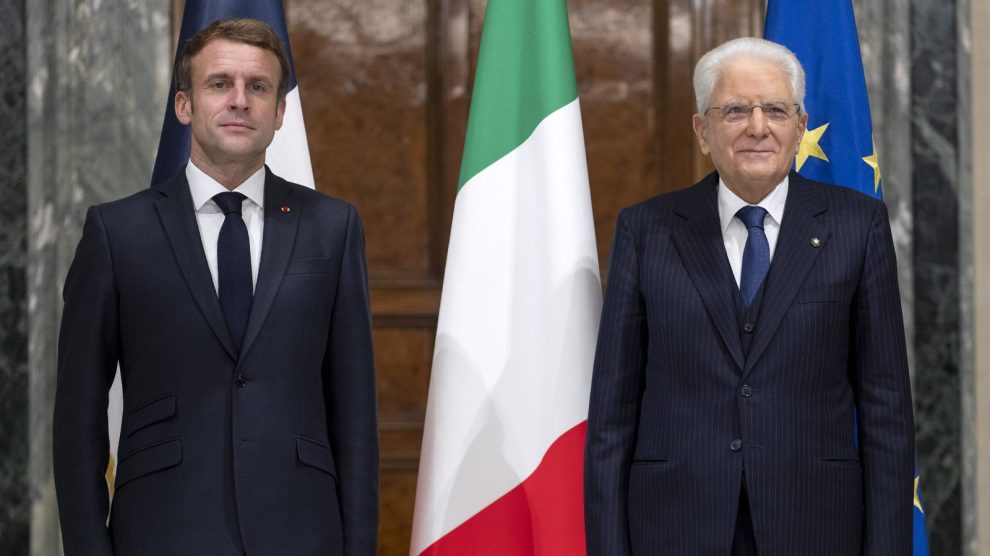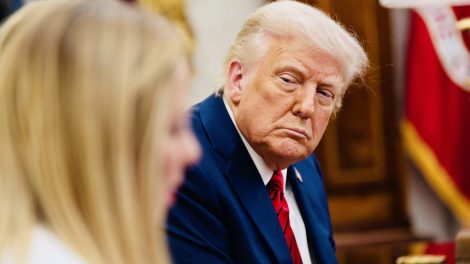France and Italy must pursue “total collaboration” through bilateral ties and within the European Union’s framework. That’s what the two countries’ respective Presidents, Emmanuel Macron and Sergio Mattarella, remarked during a phone call on Monday morning.
- The two also remarked on the importance of the ties between Paris and Rome – although only the Italian President’s social media pages posted regarding their talk.
- These declarations come at a time of tension between the countries, who have been bickering over the management and repatriation of rescued migrants.
A quick recap. Prime Minister Giorgia Meloni’s government is pushing back against refugees-laden NGO ships (although it eventually allowed them to dock) and calling for a revamped EU relocation mechanism featuring more burden-sharing across member States.
- But the way it went about it angered France, who called Italy’s behaviour “unacceptable” and took measures to curb migrant influx from Italy while urging EU members to do the same.
- Over the weekend, Italy’s calls elicited the support of other first-entry countries (Cyprus, Greece and Malta – but not Spain).
- And the European Commission chimed in to announce it was preparing an action plan to address the issue while also reminding that saving lives at sea is an unequivocal duty – regardless of the ships’ status as NGOs or otherwise.
It’s a European matter, as Italy’s Foreign Minister Antoni Tajani told journalists in Brussels later on Monday, just out of a Foreign Affairs Council meeting. “It seems to me everyone was willing to seek and find a European solution,” he commented; “I remarked that we believe the problem must be tackled at the EU level.”
- Mr Tajani also said he had “a long talk with the French Minister of European Affairs” Laurence Boone, after Presidents Macron and Mattarella spoke over the phone. “The tones were evidently very calm compared to the past days; it was a very positive discussion […] I told her what our position is, that there was no polemical intent on the part of France.”
A conciliatory chat (and internal dynamics). The Macron-Mattarella phone call was “a moment of détente, deemed opportune by both countries,” said Jean-Pierre Darnis, professor of contemporary history at the Luiss University in Rome and of the History of Italo-French relations at the University of Nice, to our sister site, arguing the chat had certainly been agreed upon between President Mattarella and the government.
- France, on its part, “stiffened from the moment the internal pressure towards [Mr] Macron began.” In this context, he added, the politicisation that Italian Deputy PM Matteo Salvini has done on the issue of migrant reception has not helped.
Unmasking the political interests. Marco Valle, a historian, essayist and foreign policy expert, sought to shed light on the internal currents that shaped the Paris-Rome dialogue in the past days. Essentially, he argued that both Mr Macron and Mr Salvini are attempting to shore up their leadership.
- The French President “no longer has a majority,” and “opening a front with Italy is useful for at least two reasons:” setting himself up as a human rights guarantor, which pleases part of his electorate, and “vindicating national sovereignty, thus silencing (at least in part) the pressure from [Marine] Le Pen and the Gaullists.”
- Meanwhile, the head of the League “is increasingly contested, even internally, and his leadership is worn out. There are at least 150 administrators […] clamouring for a leadership congress.” The only way for him to maintain his grip on the party, argued Mr Valle, is to “keep the tone high on migrants and, consequently, criticise Europe.”
- That doesn’t spell good news for the governing coalition’s unity, as it diverges from Prime Minister Meloni’s more pragmatic line.




